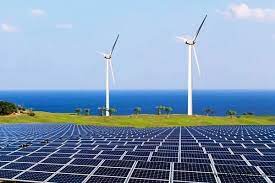Introduction
The rise of renewable energy sources like solar power has revolutionized the way we generate electricity. Harnessing energy from the sun not only reduces our dependence on fossil fuels but also helps mitigate the adverse effects of climate change. In recent years, one of the most significant advancements in solar technology has been the integration of battery storage systems. These battery solutions enable homeowners and businesses to store excess solar energy for later use, making solar power more reliable and efficient. In this blog, we will delve into the factors that influence the price of solar panels with battery storage systems and explore the benefits of adopting this eco-friendly energy solution.
The Cost Components of Solar with EP Cube Battery Systems
To understand the solar with battery price and battery storage, we must first break down the cost components:
1.1 Solar Panels
Solar panels are the primary component of any solar system. Their cost is influenced by factors such as the brand, efficiency, and size. High-efficiency panels tend to be more expensive but offer better energy output, making them a wise long-term investment.
1.2 Battery Storage Systems
The cost of battery storage has significantly decreased over the past decade due to advancements in technology and increasing market competition. Battery prices are determined by factors like capacity, type (lead-acid, lithium-ion, etc.), and brand reputation.
1.3 Inverter and Balance of System (BOS)
Inverters convert direct current (DC) generated by solar panels into alternating current (AC) usable in homes and businesses. The Balance of System includes various components like wiring, mounting structures, and monitoring systems. These costs, though less significant than panels and batteries, contribute to the overall system price.
Factors Influencing the Price
2.1 System Size
The size of the solar panel and battery storage system plays a crucial role in determining the overall cost. Larger systems generate more electricity and can store surplus energy, but they come with a higher upfront investment.
2.2 Energy Consumption
The amount of energy a household or business consumes influences the required system capacity. High energy users may need larger solar arrays and battery banks, leading to higher costs.
2.3 Location
The location of the property affects solar power generation. Areas with abundant sunlight are more conducive to solar installations, while regions with less sunlight might need larger systems for the same output.
2.4 Battery Type and Capacity
As battery technologies advance, different types of batteries offer varying levels of performance, longevity, and cost. Lithium-ion batteries, though more expensive upfront, generally provide better efficiency and longer lifespans.
2.5 Installation Complexity
The complexity of the installation process, including roof type, positioning, and electrical wiring, can influence labor costs.
2.6 Government Incentives
Government incentives, such as tax credits and rebates, can significantly reduce the overall cost of installing solar with battery systems. These incentives vary by country and state, so researching local programs is essential.
Benefits of Solar Panels with Battery Storage
3.1 Energy Independence
With battery storage, homeowners and businesses can become more energy-independent by relying less on the grid during peak hours or power outages.
3.2 Time-of-Use Savings
Battery storage allows users to store excess energy during low-demand periods and use it during high-demand (peak) times, saving money on electricity bills.
3.3 Environmental Impact
By using solar power and battery storage, individuals and companies reduce their carbon footprint and contribute to a cleaner environment.
3.4 Grid Support
Solar with EP Cube battery storage can alleviate stress on the electrical grid during peak demand, contributing to a more stable and resilient grid infrastructure.
Conclusion
Solar panels with EP Cube battery storage systems represent a significant step towards a sustainable and energy-efficient future. While the initial investment might seem daunting, the long-term benefits in terms of energy savings, reduced carbon emissions, and increased energy independence make it a compelling option for many homeowners and businesses. As technology continues to improve and government incentives become more widespread, the price of solar with battery systems is likely to become even more competitive, making renewable energy a more accessible choice for all.


No comments yet